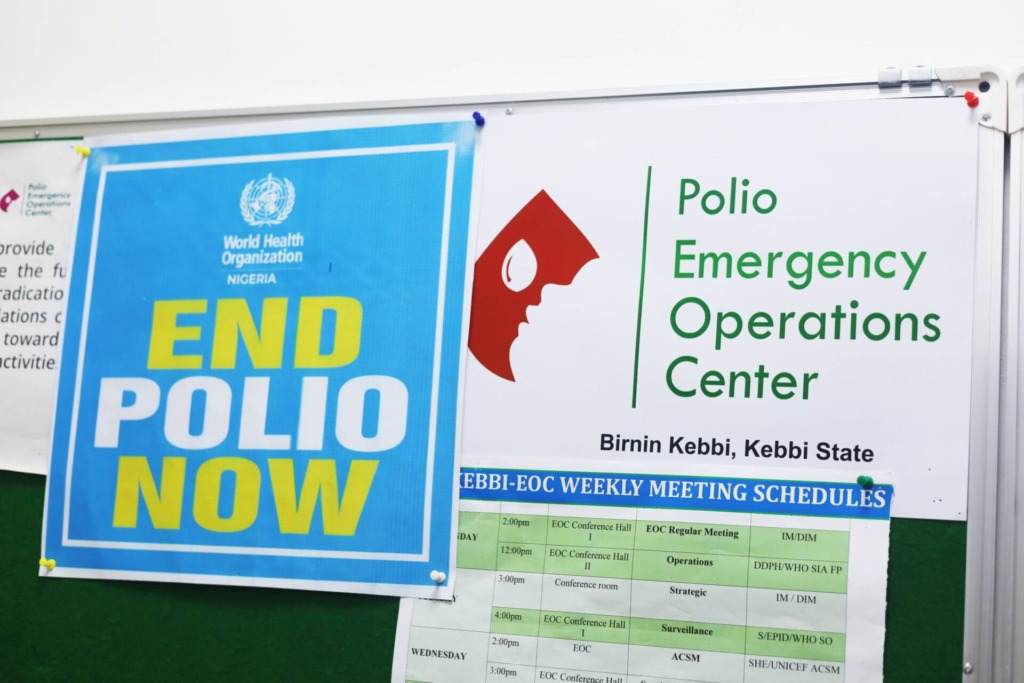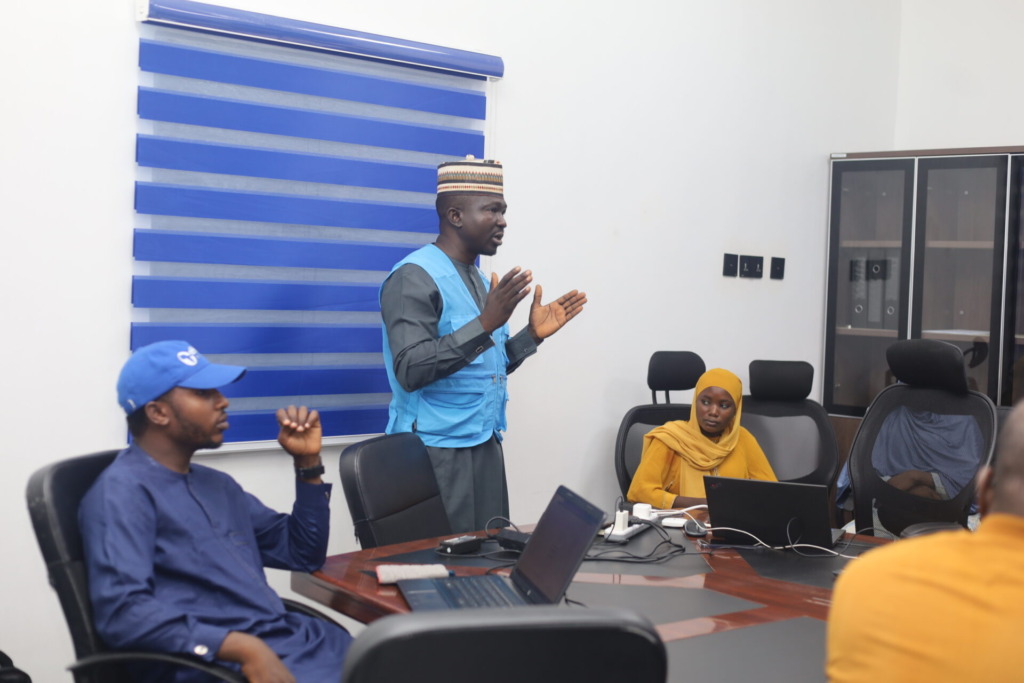By Moshood Isah

When there is a public health emergency, like a disease outbreak or a pandemic, the speed at which public health stakeholders respond can make a big difference. It can either stop things from escalating or help bring the situation under control quickly. One of the biggest challenges in such scenarios is timely coordination among key stakeholders capable of responding to the emergency.
Without a central place for everyone to meet, share information, and make quick decisions, efforts can easily become scattered. This leads to duplication, wasted resources, and missed opportunities. In a crisis, that can cost lives. What’s needed is a strong system that helps governments and partners work hand in hand, swiftly and strategically.
Since the establishment of Emergency Operations Centers (EOCs) in 11 states across Nigeria, led by eHealth Africa with support from the Gates Foundation, the story is beginning to change. States are now better equipped to respond swiftly, coordinate effectively, and save more lives during public health emergencies.

The Commissioner of Primary Healthcare in Niger State, Dr. Ibrahim Ahmed Dangana, confirmed this when he described the EOC as a critical pillar in the state’s public health emergency preparedness and response. Since its establishment, the EOC has successfully connected all 25 Local Government Areas (LGAs) in real time, enabling virtual meetings, streamlined data reporting, and rapid response to health emergencies, including childhood killer diseases like cholera and meningitis outbreaks.
“Before this center, transporting health workers for meetings was costly and inefficient. Now, we can convene hybrid sessions, access real-time data, and make quick, informed decisions,” he explained.
Echoing this sentiment, Dr. Fatima Ibrahim, the Incident Manager of the Niger State EOC, emphasized that public health is not a one-person job. She noted that the EOC’s coordinating power has made it possible to identify and leverage the unique strengths of each stakeholder, leading to more effective and unified emergency responses.
Citing a key example, Dr. Fatima shared, “During campaigns, with support from our data team at the EOC, we receive real-time analysis showing areas with high and low vaccination coverage.” According to her, this timely data enables swift action by mobilizing teams to reach underserved areas. “For instance, we identified Mashegu as a zero-dose LGA. With data from the EOC, we were able to track ongoing efforts, spot critical gaps, and bring all partners together to plan and respond collectively,” she explained.
Key public health partners have also hailed the immense impact of the EOC and the value it adds to their interventions. According to Samuel Okolo, the Niger State Lead for Sydani Group, partners are now able to coordinate and collaborate with traditional leaders for effective community mobilization, monitoring, and response.
Highlighting the power of collaboration, he shared a memorable example: “Following a partners’ meeting at the EOC, we received word that the Emir of Kagara (an LGA in Niger State) wanted to meet with the team. Fortunately, everyone was still at the center. The Incident Manager quickly mobilized the group, and we met with the Emir.” Meeting stakeholders in full capacity, the Emir not only expressed his commitment to addressing vaccine non-compliance but also pledged to visit the EOC in person—a powerful gesture of support for strengthening immunization coverage in the state.
It is especially encouraging to hear the Commissioner of Primary Healthcare in Niger State reaffirm the state’s commitment to EOC sustainability. “This initiative may have started with donor support, but sustainability is already built in. The state has fully embraced it, with budgetary provisions and strong political will to maintain and expand the facility,” he said.
The impact of Emergency Operations Centers speaks volumes about what’s possible when strategic investment meets local leadership and innovation. These centers are lifelines in moments of crisis, enhancing coordination and rapid response. As we look toward a future filled with increasingly complex public health challenges, continued support from partners and donors will be vital to scale this impact and protect more lives.






